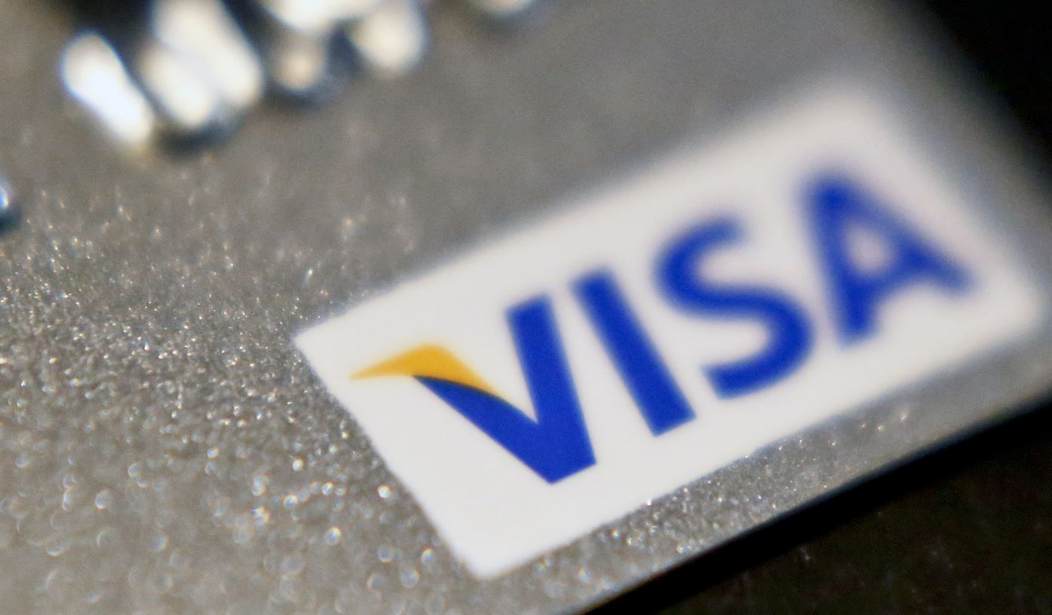Visa’s Al Kelly is leaving his role as the company’s chief executive officer this week, but before he assumes his new position as executive chairman of the board the CEO is speaking out about the new merchant category codes for gun stores imposed by the International Standards Organization last year.
In an interview with Time magazine Kelly sounded less than impressed with the new mandate, saying that the new codes aren’t needed and won’t be nearly as useful in flagging suspicious purchases as anti-gun activists have claimed.
In September a new merchant licensing code was introduced that would require credit card companies to give a particular code for gun purchases. Do you support or oppose that idea?
I don’t think the code was necessary. But it doesn’t matter; the code is in place. It’s now an international standard and we adopt international standards.
Some two dozen Republican Attorneys General sent you a letter—
I’ve heard from everybody. I don’t think there’s a senator or member of the House or attorney general in the United States I haven’t heard from. I’m telling them that we will follow the law. Guns are allowed in the United States and we would fully expect that anybody who wants to buy a gun should be able to buy that that gun provided all the other checks are done. On top of that, we’re telling them that we don’t collect [that level of data] for consumers. So if [Visa’s Chief Communications Officer] K.C. Kavanagh goes into a gun store and buys three thermoses and a tent, and you go in and buy a rifle and five rounds of ammunition, all I know is you both went to the same gun store. I know what gun store, I know when you went, and I know how much money you spent. But I don’t know what you bought.
I don’t think the code was necessary. But it doesn’t matter; the code is in place. It’s now an international standard and we adopt international standards.
Kelly is correct about the level of detail that the MCCs provide, but he neglects to mention that the anti-gun activists who were pushing for the codes in the first place don’t really care about those limitations. In their view, it seems that almost any purchase could be deemed suspicious enough to be flagged.
New York-based Amalgamated Bank first began the effort to create a code to track firearms and ammunition sales back in July 2021. They renewed the push after a series of deadly mass shootings in which young men used high-powered weapons purchased with credit cards.
Amalgamated was founded by union workers nearly 100 years ago and bills itself as the nation’s oldest socially responsible bank.
“We all have to do our part to stop gun violence,” said Priscilla Sims Brown, President and CEO of Amalgamated Bank. “And it sometimes starts with illegal purchases of guns and ammunition. The new code will allow us to fully comply with our duty to report suspicious activity and illegal gun sales to authorities without blocking or impeding legal gun sales. This action answers the call of millions of Americans who want safety from gun violence and we are proud to have led the broad coalition of advocates, shareholders, and elected officials that achieved this historic outcome.”
I wish that Time would have asked Kelly specifically about the criteria that Visa uses to determine whether or not a gun store purchase is “suspicious” enough to be flagged and reported to the federal Financial Crimes Enforcement Network, which I’d argue is more important than Kelly’s personal feelings on the need for a merchant credit code for gun stores. Are all purchases over a certain dollar amount flagged? Multiple purchases within a particular time frame? What exactly makes a transaction “suspicious” in the eyes of the credit card company, particularly given that they have no information about what, specifically, was purchased?
Several red states, including Florida, are considering legislation designed to halt the use of such codes, so this issue isn’t going away anytime soon. In fact, the Florida bill would make it a felony to assign a merchant category code “or otherwise classify a merchant that is a seller of firearms or ammunition separately from general merchandise retailers or sporting goods retailers”, so things could get very interesting in the near future as companies like Visa are forced to choose between following the edicts of the International Standards Organization or complying with Florida state laws.









Join the conversation as a VIP Member